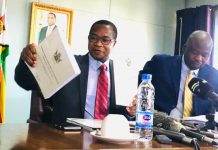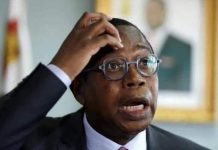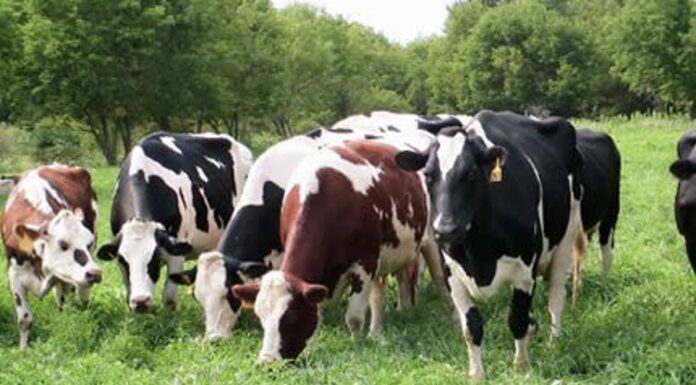Levious Chiukira
January 31, 2020, marks the date when history books need to be re-written as one of the giants of Europe, the United Kingdom, exits the continental grouping European Union, which it has been a member of for 47 years.
This will be emotional as British parliamentarians evacuate their offices in Belgium and take down the Union Jack at the EU headquarters.
In other news, there is the US-China Trade war which has been going for long including the Trump administration conditions and rejection of trade agreements.
This is all happening in a world where we have been told that regional integration is the best. The Washington Consensus pushed for capitalism as the best model and markets were to be liberalized for effective and efficient economic growth. They sold us the ideas and we fell for it.
The question which they need to answer to the rest of the world is, has regional integration failed? What about those who are still negotiating to be integrated? Should they continue or just leave it?
This is also happening at a time when African leaders are due to meet in Addis Ababa for the annual African Union Summit with the issue of African Continental Free Trade Area being top of the agenda.
The signing of the Lagos Platform for Action in 1980 by the then Organisation of African Unity (OAU) leadership for the establishment of an integrated continental community was a precursor to regional integration.
The plan came out as a response to the reports that development in Africa could be achieved by a decreased reliance on raw material extraction, industrialization, global equality in trade relations and an increase in development aid from the international community.
The idea was to have an Africa which would have a lion’s share in the global trade.
The leaders wanted Africa to be self-sufficient while reducing reliance from external parties.
As a build up from the Lagos Platform for Action, the 1991 Abuja Treaty was signed with a mandate to promote economic, social and cultural development. It also sought African economic integration to increase self-sufficiency and endogenous development while creating a framework for development, mobilization of human resources and material.
There, also, have been efforts through established RECs to integrate Africa.
The re-branding from OAU to AU brought hope to the people as the Constitutive Act of the AU spelled the desire for an integrated continent.
Article 3 of the Constitutive Act of the AU sets out the key objectives, including, accelerating the political and socio-economic integration of the continent and promoting sustainable development at the economic, social and cultural levels as well as the integration of African economies.
This had been preceded by the establishment of the Regional Economic Communities (RECs) which pioneered the agenda for the African Economic Community (AEC).
With eight officially recognized RECs, Africa has continued to be fragmented and divided across the region.
There are going to be challenges in harmonising them to AfCFTA, which is the largest free trade area in the world with a population of over one billion people and a combined GDP of above US$3 trillion.
This is a huge market and promises to conquer the world.
As heads of state are meeting in Addis Ababa in February, it is key to see how they will assess their preparedness to make AfCFTA a reality.
They are coming in the midst of the crisis between Nigeria and its neighbour Benin where borders have been closed since October 2019 due to accusations of rampant smuggling and loss of revenue.
The borders, which were established as result of colonialism at the 1895 Belin Conference continue to divide the African continent.
The continued existence of “hard” borders in Africa will be a major stumbling block to the realisation of the AfCFTA.
With South Africa assuming the chairmanship from Egypt, it will be interesting to see how it tackles the perennial issue of xenophobic attacks on fellow Africans by the South Africans.
South Africa has been blamed for being passive and restrictive on its immigrant policies with Africans being affected most with the violence.
How can we have an integrated Africa without united Africans? Whose integration is Africa pursuing? How many Dangotes, Motsepes does Africa have to invest in integrating the region? Where are the African people in this free trade area?
Only time will tell if Africa really is integrating itself or just for the easy movement of capital by the multinational corporations which are enjoying opening of markets for their products.
The African leaders need to consider the implications of this historic continental free trade area on their people.
With the influx of Chinese goods affecting large economies such as South African retailing giants, can the fragmented economies of Africa compete with the Chinese dominance? faire son propre viagra
If the US has been affected by the Chinese goods with all their laws and policies resulting in the current US-China trade war, the big question is how Africa will safeguard the integrity of its institution and economies against that?
As Boris Johnson says goodbye to the EU, is Africa wholly welcoming the AfCFTA?













[…] First published on https://www.theanchor.co.zw/2020/01/31/will-africa-succeed-with-afta-integration-as-britain-exits-eu/ […]